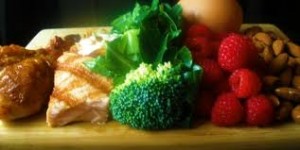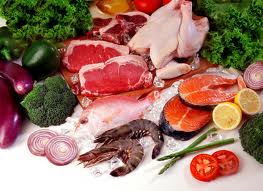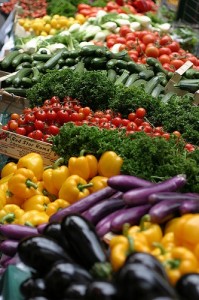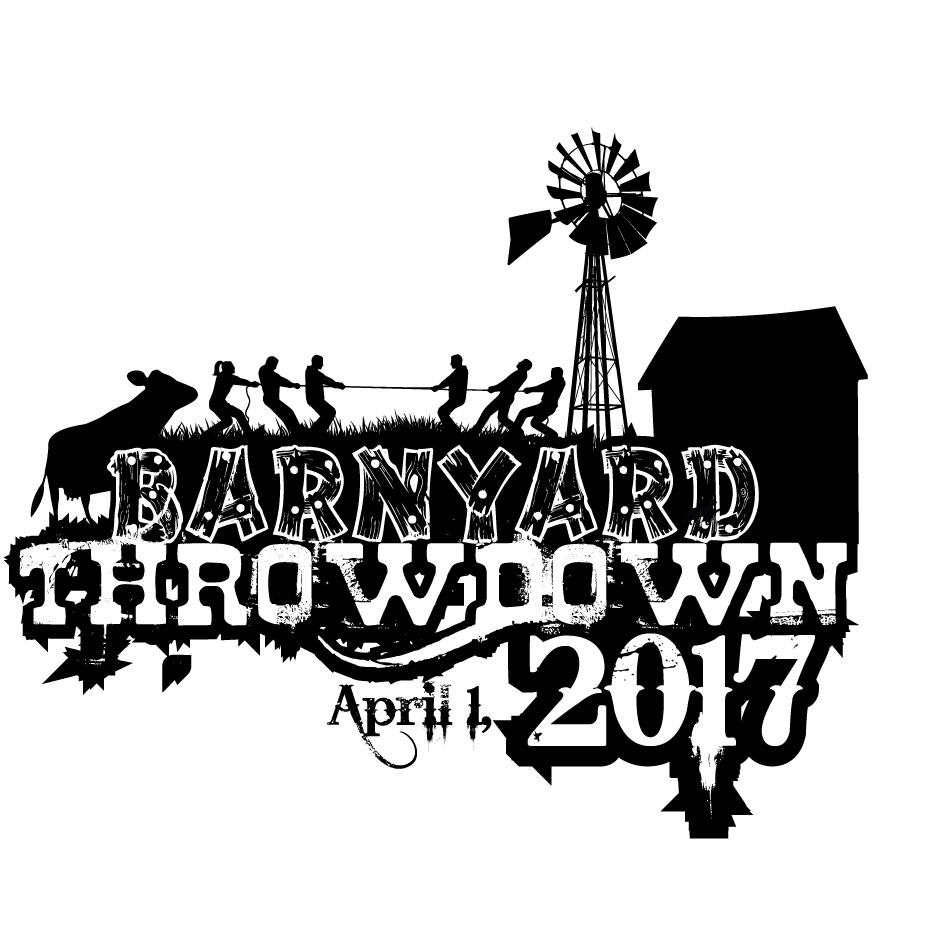Paleo
The Paleo diet is simple yet remarkably effective for fat loss and
halting or preventing a number of degenerative diseases. To reap the benefits of the most effective nutritional strategy known, one need simply build meals from the following:
- Lean proteins (ideally) grass fed meat, free range fowl and wild caught fish
- Seasonal fruits and vegetables
- Healthy fats such as nuts, seeds, avocado, olive oil, and coconut oil
The Paleo diet is built from the healthiest, most nutritious foods available:
- Lean proteins that support strong muscles, healthy bones and optimal immune function. Protein also makes you feel satisfied between meals.
- Fruits and vegetables rich in antioxidants, vitamins, minerals and phytonutrients that have been shown to decrease the likelihood of developing a number of degenerative diseases including cancer, diabetes and neurological decline.
- Healthy fats from nuts, seeds, avocadoes, olive oil, fish oil and grass-fed meat. Scientific research and epidemiological studies show that diets rich in Monounsaturated and Omega-3 fats dramatically reduce the instances of obesity, cancer, diabetes, heart disease and cognitive decline.
Although the Paleo lifestyle starts with these healthy and delicious foods, not everyone’s needs and situations are the same. The paleo diet is infinitely customizable to meet YOUR specific needs and goals. Diets that recommend rigid food ratios or Spartan calorie counting seldom work over the long term because these approaches typically emphasize foods (refined grains, sugar and dairy) that are at odds with our genetics. When we eat according to our genetic heritage weight loss, improved energy and optimal health are fun and easy to accomplish. Here are some ways you can customize the Paleo diet to meet your individual needs:
 Fat Loss
Fat Loss
Effective, lifelong fat loss is easy with Paleo foods. We recommend the majority of your meals look something like this:
- 4-8 oz of lean protein such as chicken, lean beef, turkey, pork loin or seafood.
- Then add several servings of multicolored vegetables, either raw, steamed or lightly cooked.
- Finally, round out the meal with good fats from Avocado, olive oil or a handful of un-salted nuts such as almonds, pecans, macadamias or walnuts.
Make sure to have 3-4 meals like this each day. Give it 30 days and then let us know how quickly and easily it is to lose unwanted body fat, all without hunger and cravings. Until you reach your desired level of leanness, we recommend you keep your fruit intake to 1-2 servings per day and make these choices mainly from berries and melons. Keep in mind, you will be eating plenty of nutritious fresh vegetables, we just want you to see the fastest, most effective results you can. This is why we limit your fruit in the beginning to help you change your metabolic engines to a mode of “fat burning”.
Athletics
The needs of athletes vary greatly depending upon one’s sport and level of activity. The needs of a marathon runner are quite different from those of boxer or Olympic Weightlifter. Despite these different needs, all athletes share a few things:
- Means of optimizing performance
- Methods for improving recovery
The Paleo diet is the perfect solution for both performance and recovery.  Lean protein sources such as chicken, lean beef, turkey, pork loin and sea food are ergogenic (performance enhancing) because of the large amount of Branched Chain Amino Acids (BCAA’s) which have been proven to be crucial in rapid recovery after hard training, both for strength and endurance athletes. So all of your meals will start with 4-8 oz of lean proteins.
Lean protein sources such as chicken, lean beef, turkey, pork loin and sea food are ergogenic (performance enhancing) because of the large amount of Branched Chain Amino Acids (BCAA’s) which have been proven to be crucial in rapid recovery after hard training, both for strength and endurance athletes. So all of your meals will start with 4-8 oz of lean proteins.
The next piece of customization is dependent upon the nature of your sport. High-intensity aerobic or anaerobic sports such as soccer, boxing, wrestling, mixed martial arts or sprint interval training (running, biking, swimming, rowing) should take advantage of a period of time post workout when the body is primed for recovery. A meal of 4-8 oz of lean protein PLUS 50-100g of nutritious, Paleo friendly carbohydrate such as yams, sweet potatoes, squash or fruit should be consumed within 30 min post workout to optimize repair of muscle tissue and to ensure muscle glycogen is optimally replenished. The amount of carbohydrate will vary based on how large you are and the volume and intensity of your training. The larger you are or the harder/longer the training, the more carbohydrate you will GENERALLY need to optimize recovery. Some athletes may find they require 2 protein+carbohydrate meals to optimize recovery from particularly grueling work or multi-session training days. Subsequent meals should be built around lean protein, multi-colored, low carbohydrate density vegetables and good fats.
For sprinters, and other power athletes most meals should be built around lean proteins, a variety of low carbohydrate density vegetables and liberal use of good fats. Power athletes may find benefit from a higher intake from Paleo friendly carbs such as yams, sweet potatoes and fruit once or twice per week. This is called a “cyclical-low carbohydrate” diet and has been enormously popular with track and field athletes, football players, Olympic weightlifters and other athletes who place a premium on strength, power and exceptionally low body fat levels. To see the best possible performance and body composition, the power athlete should eat at least 1g of protein per lb of bodyweight per day.
 Autoimmunity
Autoimmunity
Emerging research has made clear the link between Neolithic foods (grains, legumes and dairy) and autoimmune diseases such as Lupus, Rheumatoid Arthritis, Multiple Sclerosis and a host of other less well know conditions. Many people have found significant improvements in autoimmune disease by eliminating the Neolithic foods and building a diet around nutritious Paleo options. If you suffer from an autoimmune disease we highly recommend you start a Paleo diet and let us know what your results are. To give your body its best chance to heal we recommend that you initially limit the following foods:
- Eggs
- Tomatoes & eggplants
- Peppers including bell peppers and hot peppers
- Spices such as curries, paprika, and chili powder.
Some of these otherwise Paleo-friendly foods have been shown to be problematic in individuals with autoimmune issues. We recommend you fully remove not only these foods but also all Neolithic foods (grains, breads, potatoes, beans and dairy) for at least a month to see if they pose a problem for you.
Here is a list of acceptable foods on the Paleo Diet. Print this out and feel free to bring it to us to discuss and figure out the best plan for your goals.
Paleo – Food ListCourtesy of robbwolf.com

